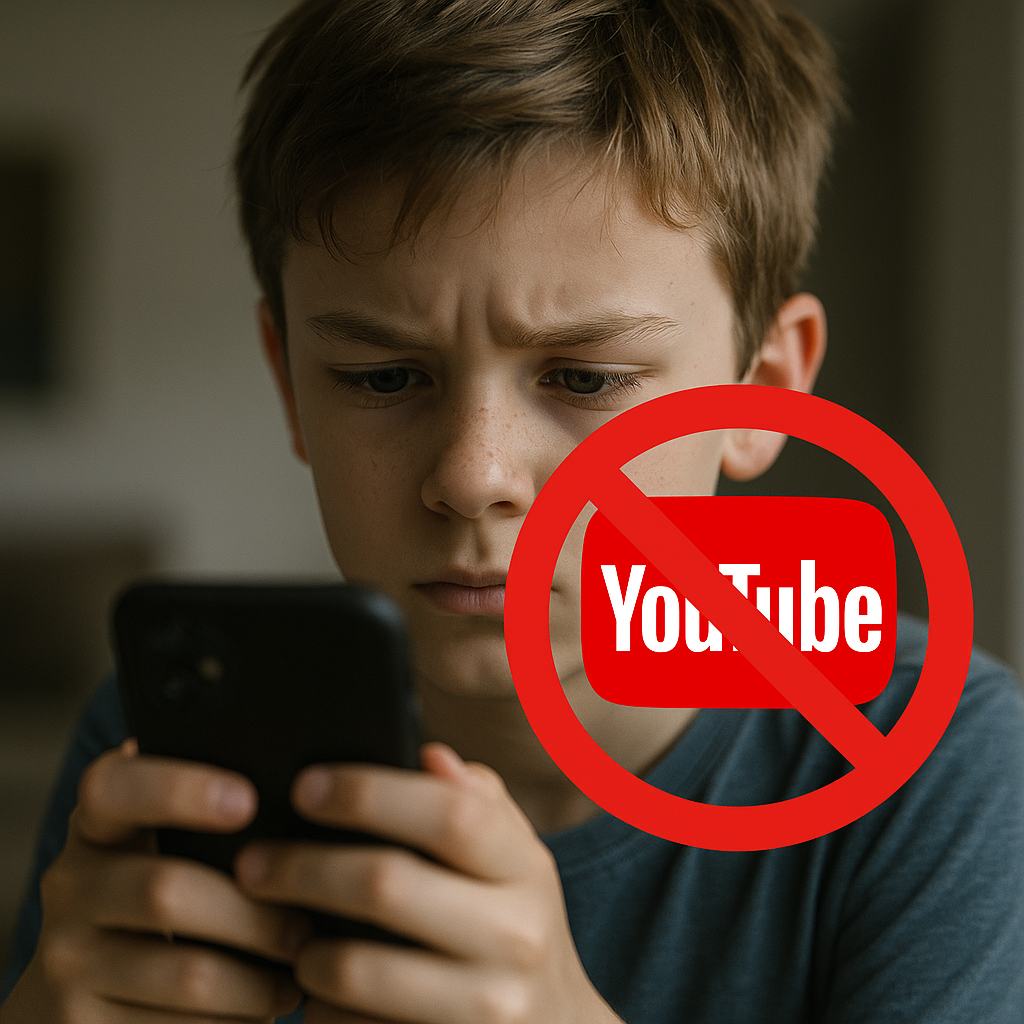Future Ready Minds
Created on-
July 29, 2025
Why Australia’s YouTube Ban for Kids Under 16 Is a Vital Step Toward Curbing Digital Addiction

Background on the New Legislation
The Online Safety Amendment (Social Media Minimum Age) Act 2024
Australia’s Online Safety Amendment (Social Media Minimum Age) Act 2024 mandates that children under 16 cannot create or maintain accounts on major social platforms including YouTube, TikTok, Instagram, and Facebook. Violations carry penalties of up to AUD 49.5 million.
Inclusion of YouTube in the Ban
YouTube was initially exempted but added after data showed 37% of kids aged 10–15 encountered harmful content there. Starting 10 December 2025, platforms must verify users’ ages using mobile ID, banking, AI facial recognition, or similar technologies.
Digital Addiction Risks Among Young Teens
Algorithmic Design and Addictive Feeds
YouTube’s recommendation engine feeds users content that keeps them engaged, often leading to compulsive viewing. This increases screen time and decreases sleep, attention span, and mental wellbeing.
Mental Health Concerns
Teens report rising anxiety and depression linked to extended social media use. Without account access, they’ll be less exposed to algorithmic content designed to keep them scrolling.
Benefits of the Ban for Children and Families
Reducing Persuasion and Screen Time
Removing account features means no custom playlists, subscriptions, or comments, limiting persuasive design elements that hook young users.
Encouraging Real‑World Development
The ban aims to restore balance, more face-to-face interaction, physical activity, and real-world exploration. It’s a step toward healthier tech habits.
Challenges and Considerations
Educational Content and Restricted Access
Critics argue that some curious kids will lose access to educational content, even if YouTube Kids remains available. The loss of custom playlists could limit learning.
Age‑Verification and Privacy Implications
Facial recognition or ID-based verification raises privacy and equity issues. Not all families may have access to these tools, potentially excluding some youth.
What Other Jurisdictions Are Considering
U.S. and U.K. Draft Laws
The U.S. has proposed the Kids Off Social Media Act (KOSMA), banning under-13s and removing algorithmic feeds for minors. The UK is eyeing similar legislation to safeguard digital exposure.
Safe‑Feed or Age Lockdown Proposals
Other ideas include chronological feeds instead of algorithmic ones, or requiring parental consent for all accounts under 18.
Key Takeaways
- Australia is the first country to ban YouTube and social media accounts for under-16s.
- The goal is to curb digital addiction by reducing algorithm exposure.
- While helpful, this raises questions about equity, access, and education.
- Similar laws are surfacing globally, signaling a trend in youth protection.
Final Thoughts
Australia’s YouTube ban for under-16s represents a bold public health move. By limiting exposure to addictive content and protecting mental health, the country is setting a precedent other nations may soon follow. Want expert help guiding your family or school through digital wellness strategies? Get in touch with Future Ready Minds today.
External links





.svg)